By Jennie Carignan for Canadian Military Journal (CMJ)
 What exactly constitutes victory in war? Is such an end state possible, or was Kenneth Waltz right to once opine that “[I]n war, there is no victory but only varying degrees of defeat.” In this article, Jennie Carignan wrestles with these questions by 1) reviewing the contributions of various theorists to the cult of victory in military thinking; 2) explaining how the concept dominates the day-to-day narratives of political decision makers; and 3) speculating on how current notions of victory might be redefined.
What exactly constitutes victory in war? Is such an end state possible, or was Kenneth Waltz right to once opine that “[I]n war, there is no victory but only varying degrees of defeat.” In this article, Jennie Carignan wrestles with these questions by 1) reviewing the contributions of various theorists to the cult of victory in military thinking; 2) explaining how the concept dominates the day-to-day narratives of political decision makers; and 3) speculating on how current notions of victory might be redefined.
Introduction1
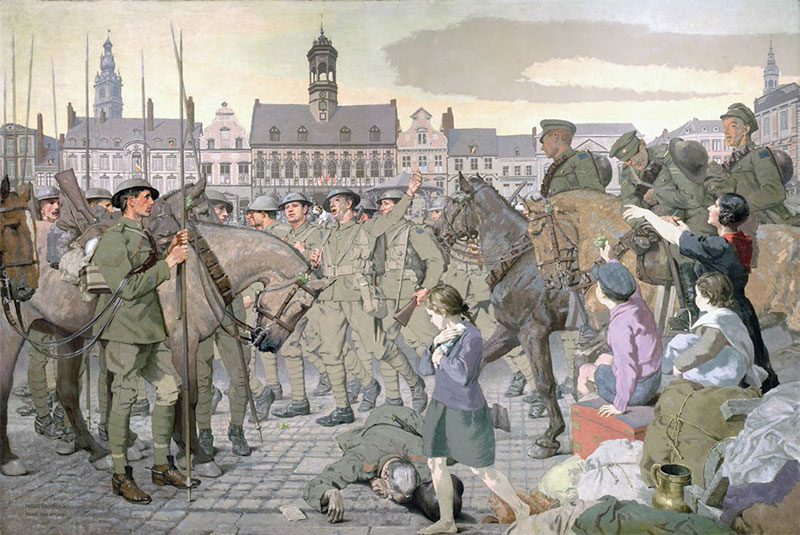 Inspiration often arrives unexpectedly. The idea for this article was sparked by a discussion I had with one of my demining specialists at Camp Nathan Smith in Kandahar, in 2009. He described the tactical situation he faced daily in the Kandahar City area, where he was required to neutralize up to nine or ten explosive devices in a single day. The devices were often found in the same places he had cleared a few days earlier. He summed up our discussion by telling me, “Look, Madame, we’re not winning this war.” Clearly, this is alarming and disappointing considering the effort expended, the lives lost, and the Canadian Armed Forces’ intent to fight that battle until victory was achieved. This raises a question: What, exactly, is victory? What does it mean to “win a war”? Why did my demining specialist – despite his total commitment, the many sacrifices he had made for his country and the risks to his life – have the perception that his actions would not lead to victory?
Inspiration often arrives unexpectedly. The idea for this article was sparked by a discussion I had with one of my demining specialists at Camp Nathan Smith in Kandahar, in 2009. He described the tactical situation he faced daily in the Kandahar City area, where he was required to neutralize up to nine or ten explosive devices in a single day. The devices were often found in the same places he had cleared a few days earlier. He summed up our discussion by telling me, “Look, Madame, we’re not winning this war.” Clearly, this is alarming and disappointing considering the effort expended, the lives lost, and the Canadian Armed Forces’ intent to fight that battle until victory was achieved. This raises a question: What, exactly, is victory? What does it mean to “win a war”? Why did my demining specialist – despite his total commitment, the many sacrifices he had made for his country and the risks to his life – have the perception that his actions would not lead to victory?
The Return to Mons, by Inglis Sheldon-Williams. Mons was the site of the first major battle fought by the British Army in 1914. Millions of lives later, the Canadian Corps liberated the city during the final days of the war.
A number of eminent military experts have stated that the primary objective in war is to win,2 or that, “In war there is no substitute for victory.”3 The concept of victory plagues the military. Because an armed force is employed as a last resort, it must win its battles to ensure the survival of its country. The perception of victory as an end in itself – and as synonymous with strategic success – is therefore ever present in the minds of senior military commanders. But what are the implications of victory as a strategic objective for the high command and for military personnel deployed on the ground?
This fundamental, important, and timely question serves as a backdrop for any strategic thinking by senior military leaders who must decide how armed forces will be employed in military interventions. This article will examine military operations in the strategic context of war, from the perspective of the relationship between the end (victory) and the means (the use of armed force). It will also explore how that relationship impacts the manner and the mindset in which military actions are carried out on the ground.
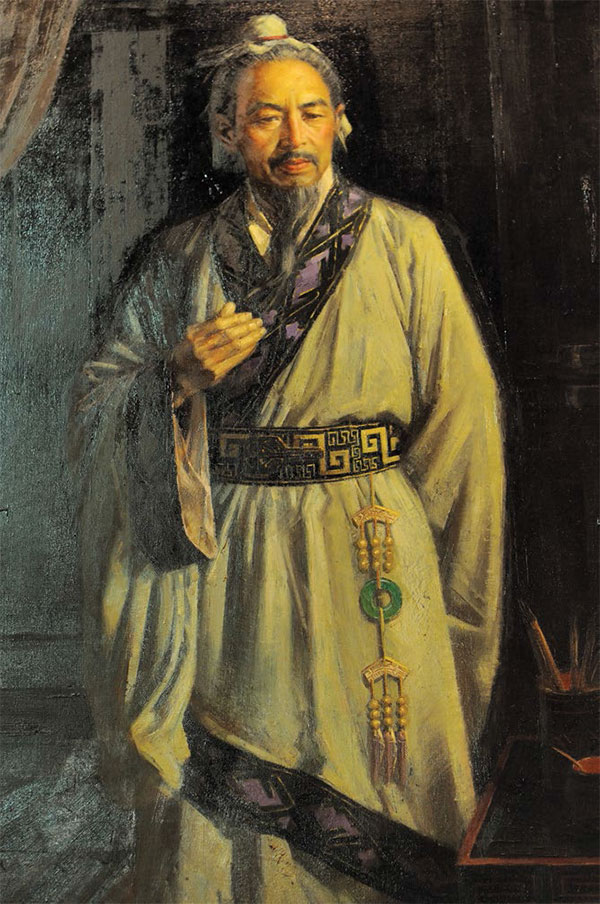 The article is organized into three parts. The first is an overview of the theorists and strategists who have contributed to the cult of victory in military thinking in order to understand their legacy. We will suggest that it is a collection of ambiguous and incoherent ideas. The second part considers how the concept of victory dominates the day-to-day narratives of political decision makers and military experts. When strategic commanders use the word “victory” (or “success”) without bothering to define it clearly, the result is confusion, both for citizens of the country that is mobilizing for war, and for the military personnel tasked with carrying out the operations. The third part proposes possible solutions for moving beyond the notion of victory and offering an approach that might be better suited to the reality of modern warfare, in which it is often impossible to determine with certainty who won and who lost.
The article is organized into three parts. The first is an overview of the theorists and strategists who have contributed to the cult of victory in military thinking in order to understand their legacy. We will suggest that it is a collection of ambiguous and incoherent ideas. The second part considers how the concept of victory dominates the day-to-day narratives of political decision makers and military experts. When strategic commanders use the word “victory” (or “success”) without bothering to define it clearly, the result is confusion, both for citizens of the country that is mobilizing for war, and for the military personnel tasked with carrying out the operations. The third part proposes possible solutions for moving beyond the notion of victory and offering an approach that might be better suited to the reality of modern warfare, in which it is often impossible to determine with certainty who won and who lost.
The article will demonstrate that victory is not useful as a strategic objective, but it will not call into question the importance of the troops’ operational effectiveness, or of tactical success. It would be frivolous to think that troops go into battle with the intention of losing. They want to win, but at what price, and to what extent? Given that the phenomenon of war is almost incomprehensible, especially from a moral point of view,4and that actual wars often suffer from a lack of clear strategic direction, I would submit that political decision makers and senior military commanders who commit military forces abroad must not limit their thinking to the idea of victory.
Charistoone-images/Alamy Stock Photo BB9HHR. Painting of Sun Tzu, China Military Museum, Beijing.
A Theoretical Legacy of Ambiguity
 The narrative of victory, as it developed from the writings of Sun Tzu until the early-20thCentury, can be divided into two main theoretical orientations. For classical and pre-modern thinkers, the strategic goal of war was to conquer a territory through a series of tactical victories. Consequently, they emphasized the conditions required in order to defeat armies on the battlefield. With the arrival of mechanized forces in the industrial era, military thinkers, including Napoléon Bonaparte, Antoine de Jomini, Carl von Clausewitz, and John Frederick Charles Fuller favoured total war that would mobilize all of a nation’s human, economic, technological, and industrial resources to destroy the enemy, and thus achieve “decisive victory.”5 For a number of strategists, the defeat of Germany in the two world wars lent credence to the idea that the objective of any war is to achieve a series of tactical successes leading to final victory.
The narrative of victory, as it developed from the writings of Sun Tzu until the early-20thCentury, can be divided into two main theoretical orientations. For classical and pre-modern thinkers, the strategic goal of war was to conquer a territory through a series of tactical victories. Consequently, they emphasized the conditions required in order to defeat armies on the battlefield. With the arrival of mechanized forces in the industrial era, military thinkers, including Napoléon Bonaparte, Antoine de Jomini, Carl von Clausewitz, and John Frederick Charles Fuller favoured total war that would mobilize all of a nation’s human, economic, technological, and industrial resources to destroy the enemy, and thus achieve “decisive victory.”5 For a number of strategists, the defeat of Germany in the two world wars lent credence to the idea that the objective of any war is to achieve a series of tactical successes leading to final victory.
GL Archive/Alamy Stock Photo ECTRRX. Napoleon Crossing the Alps, by Jacques-Louis David, 1805.
The eminent Chinese strategist Sun Tzu, writing in the 3rd or 4thCentury B.C., stated: “Victory is the main object in war.”6 For Sun Tzu, the essence of victory was that it should be achieved quickly, and if possible, without combat. However, he also cautioned against the blind pursuit of victory, suggesting that it is not strictly tactical but inextricably related to strategy. Sun Tzu recognized that victory is not easy to define, and that post-conflict events are unpredictable and difficult to control.7 In a survey of military thinkers in antiquity, distinguished scholar and Professor of International Security Studies Dr. William Martel points out that Sun Tzu understood the importance of victory on the strategic level. Martel also notes that the Greeks, especially Thucydides, knew the advantages and disadvantages of a strategic victory but that, again, they did not develop their thinking into a more complete theory of war. Lastly, western military thinkers, fascinated by the military superiority of the Romans, focused upon tactical victory, and this can be seen in the writings of numerous strategists in the Renaissance, the Enlightenment, and the 19th Century.8
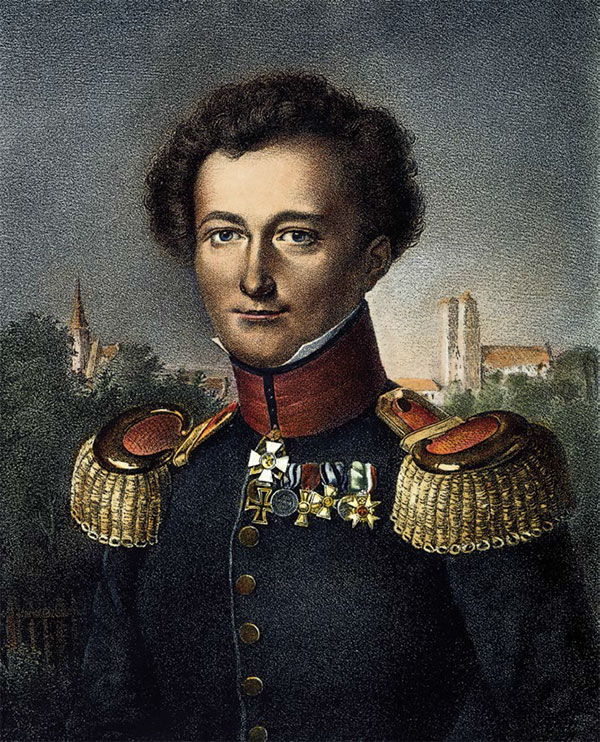 Building upon the precedent set by the mass uprising of the French Revolution, Napoléon Bonaparte greatly influenced the development and practice of the idea that states can mobilize their citizens and build large armies to wage total wars. Napoléon believed that success on the battlefield would bring him peace and prosperity, but instead, all he achieved was considerable military glory, notably at the Egyptian pyramids, and in particular, at Austerlitz and Jena, where his victories were total.9 Although the emperor did not define victory solely in terms of interactions between armies and tactical engagements, his ideas contributed to the idea of victory as a decisive strategic result.
Building upon the precedent set by the mass uprising of the French Revolution, Napoléon Bonaparte greatly influenced the development and practice of the idea that states can mobilize their citizens and build large armies to wage total wars. Napoléon believed that success on the battlefield would bring him peace and prosperity, but instead, all he achieved was considerable military glory, notably at the Egyptian pyramids, and in particular, at Austerlitz and Jena, where his victories were total.9 Although the emperor did not define victory solely in terms of interactions between armies and tactical engagements, his ideas contributed to the idea of victory as a decisive strategic result.
Granger Historical Picture Archive/Alamy Stock Photo FF9HM9. Carl von Clausewitz, lithograph after a painting by W. Wach.
German strategist Carl von Clausewitz is unquestionably one of the greatest military thinkers in history. His reputation is based largely upon his unfinished work On War, published after his death in 1831. His famous axiom, “War is merely the continuation of policy by other means,”10 draws an explicit connection between a war’s military means and its political ends. His conception of war is based upon the importance of its political and social consequences. Understanding and interpreting Clausewitz requires familiarity with the ideas of Emmanuel Kant,11particularly “the thing in itself.”12 As Clausewitz put it, “All in all, therefore, its distinguishing feature is that, more than any other type of action, battle exists for its own sake alone.”13Moreover, “Destruction of the enemy’s forces is the overriding principle of war, and so far as positive action is concerned the principal way to achieve our object.”14
Although Clausewitz’s theory on war is sophisticated and finely nuanced, the aspect of it that has received the most attention is the principle of destruction. Dependence upon this principle has radically influenced western military thinking and the way wars are fought all over the world. Israeli strategist Shimon Naveh argues that the idea was widely accepted due to its fairly simple but brilliantly organized reasoning. The fact that Clausewitz’s audience lacked critical tools led to the dominance of his principle, and consequently, of warfare based upon destruction.15
Throughout Clausewitz’s work, we see the ‘tacticization’ of strategy. “Strategic planning rests on tactical success alone, and that – whether the solution is arrived at in battle or not – this is in all cases the actual fundamental basis for the decision.”16 For Clausewitz, combat is first and foremost an end in itself. Although he was the first theorist to explicitly distinguish between the military means and the political ends of war, he made little mention of the concept of victory, because he believed that tactical battles would be sufficient to achieve strategic objectives.
The concept of total war and destruction inherited from the 19th Century dominated military thinking during the first half of the 20th Century. In the two world wars, nations mobilized an unprecedented level of resources to produce war machines capable of wiping out enemy states.17 Thus, the concept of victory retained as a result of that experience is that the strategic objective (victory through complete and unconditional surrender) is obtained by employing military means. As sociologist Eric Ouellet has noted, victory can be constructed in a legal sense (based upon the signature of a treaty of surrender), or in an empirical sense (based upon the achievement of the stated strategic objectives).
ITAR-TASS Photo Agency/Alamy Stock Photo CX16XT. Again, after the loss of millions of lives, the Victory Banner is raised over the Reichstag by a Russian soldier, Berlin April 1945.
Uppermost in military leaders’ minds, implicitly or unconsciously, is the desire for a strategic victory leading to a treaty of surrender. The importance of this objective arises from the fact that it can be clearly defined. However, that theoretical clarity is not infallibly realized in practice. The achievement of strategic objectives in the military sense and the signature of a surrender treaty are two sides of one reality, and they are difficult to reconcile in the current historical context where war involves not only regular armies and states, but also amorphous organizations whose motivations often extend beyond politics in the traditional sense of the term. That is why the operations in which Canada and its allies engage do not in any way facilitate fulfilment of the “desire for a strategic victory” as defined above.
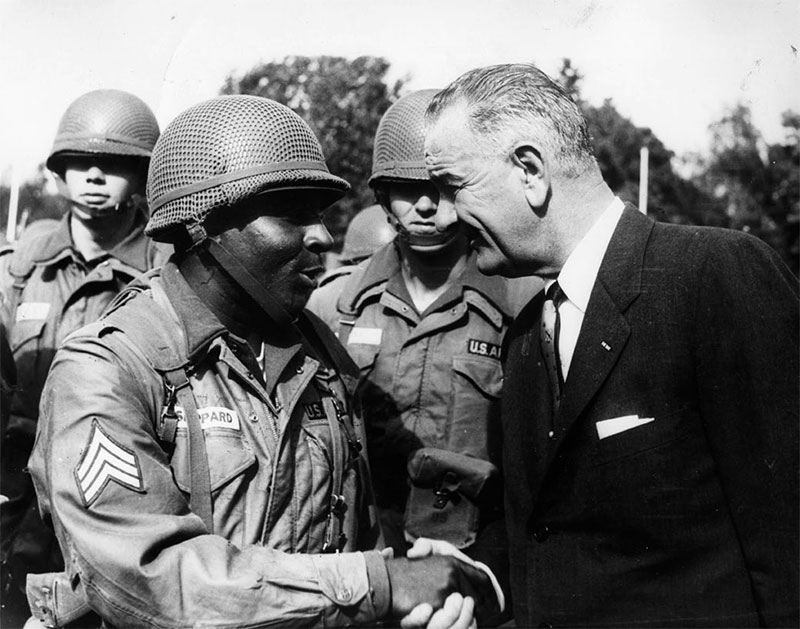 Victory in the empirical sense suggests that the strategic objectives have been clearly stated, and that we evaluate the results – and therefore the victory – in terms of the achievement of those objectives. However, that evaluation is highly unlikely to be interchangeable with victory in the legal sense. This discrepancy creates confusion. The concept of victory may mean a result that is tactical and fundamentally military, or a result that is strategic and fundamentally political, perhaps even ideological and cultural. The ambiguity of the concept presents the high command with a significant problem, including the way it is traditionally used.
Victory in the empirical sense suggests that the strategic objectives have been clearly stated, and that we evaluate the results – and therefore the victory – in terms of the achievement of those objectives. However, that evaluation is highly unlikely to be interchangeable with victory in the legal sense. This discrepancy creates confusion. The concept of victory may mean a result that is tactical and fundamentally military, or a result that is strategic and fundamentally political, perhaps even ideological and cultural. The ambiguity of the concept presents the high command with a significant problem, including the way it is traditionally used.
Keystone Pictures USA/Alamy Stock Photo E0W749. Lyndon B. Johnson conferring with US troops in Berlin, 1961, prior to him assuming the presidency.
The Quagmire of Victory
According to renowned psychologist Elliot Aronson, “From the Little League ballplayer who bursts into tears after his team loses, to the college student in the football stadium chanting ‘We’re number one!’; from Lyndon Johnson, whose judgment was almost certainly distorted by his oft-stated desire not to be the first American president to lose a war, to the third grader who despises his classmate for a superior performance on an arithmetic test; we manifest a staggering cultural obsession with victory.”18
For most people, the image of the Allied forces marching victoriously through the streets of Paris at the end of the Second World War is a good representation of military victory. However, despite the fact that war is one of the oldest human activities, to date, no theory has been developed to explain its nature and the way in which it should be conducted. As we offered in the first part of this article, despite the vastness of the literature on the subject of victory, the majority of writers focus upon the mechanical aspects (the “how”) of what a state must do to win the war, without really describing what “victory” means.
As a result, there is no theory, no appropriate language and no narrative that defines victory in terms of assessing the results obtained after a war, or what the political decision makers wanted to accomplish by military means.19 Curiously, the problem of victory, which is of fundamental importance for a nation, is cloaked in language that is incoherent, imprecise, and confused. We need only think of the public debate in Canada about what “combat” means for our troops, what a war is or is not, and what victory and defeat mean.20 The recent Canadian interventions in Afghanistan and Libya illustrate the difficulty of clearly determining who won and who lost. And therein lies the problem: if we agree to use the language of victory, we are automatically required to decide who is victorious and who has been vanquished.
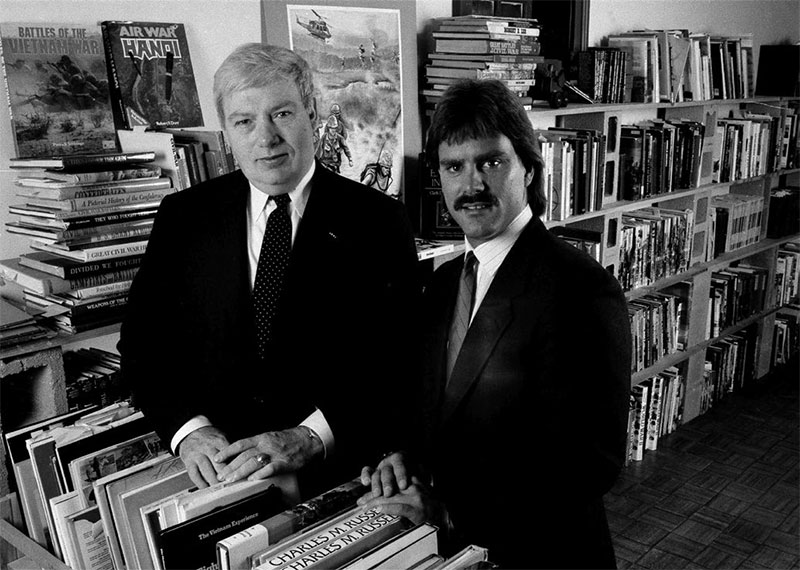 For the strategic command, the fundamental principle is clear and usually implicit. In the words of U.S. General Douglas MacArthur, “In war there is no substitute for victory.” And British Field Marshal Bernard Montgomery, in his 1945 publication High Command in War, noted, “A war is won by victories in battle.”21 If we accept this axiom, how do we explain the fact that, since the end of the Cold War, military triumphs have not generated the expected positive outcomes? One of the most striking examples is that of Vietnam, where the Americans won every tactical battle but lost the war. Strategist and U.S. Army Colonel (ret’d) Harry Summers, speaking to his counterpart in the North Vietnamese Army north of Hanoi five days before the fall of Saigon, said: “You know, you never beat us on the battlefield.” The Vietnamese officer replied, “That may be so, but it is also irrelevant.”22 That was also true in the Battle of Algiers in 1957 – an instructive example regarding the notion of victory, for, despite the widespread, systematic use of torture that enabled them to win the tactical battle, the French lost the war. Thus, for both the United States in Vietnam and the French in Algeria, total tactical victory proved strategically costly in terms of human lives, equipment, and international credibility.
For the strategic command, the fundamental principle is clear and usually implicit. In the words of U.S. General Douglas MacArthur, “In war there is no substitute for victory.” And British Field Marshal Bernard Montgomery, in his 1945 publication High Command in War, noted, “A war is won by victories in battle.”21 If we accept this axiom, how do we explain the fact that, since the end of the Cold War, military triumphs have not generated the expected positive outcomes? One of the most striking examples is that of Vietnam, where the Americans won every tactical battle but lost the war. Strategist and U.S. Army Colonel (ret’d) Harry Summers, speaking to his counterpart in the North Vietnamese Army north of Hanoi five days before the fall of Saigon, said: “You know, you never beat us on the battlefield.” The Vietnamese officer replied, “That may be so, but it is also irrelevant.”22 That was also true in the Battle of Algiers in 1957 – an instructive example regarding the notion of victory, for, despite the widespread, systematic use of torture that enabled them to win the tactical battle, the French lost the war. Thus, for both the United States in Vietnam and the French in Algeria, total tactical victory proved strategically costly in terms of human lives, equipment, and international credibility.
The Canadian Press/Associated Press/Martin Simon/14323328. Colonel (ret’d) Harry Summers (left), in 1988. Summers passed away in 1999.
Today, many experts agree that there is no causal relationship between tactical victories and the achievement of strategic objectives at the political level.23 The recent wars in Iraq, Libya, and Afghanistan are good examples of the limits of tactical success and the use of force. Even though the Canadian Armed Forces “won” all their tactical battles in Afghanistan, it is impossible to conclude that we won the war. Blanken, Rothstein, and Lepore, in their recent book, Assessing War, clearly illustrate the challenge of linking tactical success in the field to future strategic success.24 Over time and in different circumstances and cultures, the word “victory” has had different meanings, some of them confused and contradictory for both the winners and the losers.25 Today, the norm is to use the word freely on the assumption that everyone understands it, without defining it specifically.
For soldiers, participating in combat requires intense physical and psychological engagement. They endure the unthinkable during their missions, where they must face violence and death every day. They must also cope with the loss of their comrades in arms, while being separated from their families for long periods, with all the disruptions that entails. Soldiers therefore have a pressing need to be convinced that they are doing the right thing, and that their efforts are worth the sacrifice. When the terms of victory – the goal to be achieved, the end – are not clearly defined or, worse, when what soldiers see on the ground does not correspond to the idea they had of victory, they are left with the distinct impression that they are participating in a futile activity.
This means that, if senior commanders are fixated upon the concept of victory, their fixation may be detrimental to soldiers on operations, who may take for granted that the end (victory) justifies the use of unacceptable means to achieve it. The concept of victory that transcends all levels, from tactics to grand strategy, may change in status and meaning in time and space. That being so, it will strongly influence the means employed to achieve a so-called “decisive” victory. Soldiers may lose sight of the fact that a tactical victory is only one of a number of means for achieving the strategic objective.26
Soldiers’ minds assimilate various slogans that set the tone for the way troops are required to act in order to achieve the all-important victory. As we saw earlier, the saying, “there is no substitute for victory” is widespread in the military. There are many other examples, such as “war is hell,” “kill or be killed,” “shoot everything that moves,” “go ugly early” and “shoot them all and let God sort them out.” Thus, if the purpose of combat manoeuvres is destruction, and combat is the foundation of war, destruction and victory inevitably become the objectives of war. Showing clemency becomes a weakness that must be eliminated in the name of “victory.” Morality is for the losers.
If we extend the paradox farther, we realize that even if a soldier wants to act morally, the need to win at any price may push him or her to commit atrocities in the name of the victory the troops have been directed by the high command – whether explicitly or implicitly – to achieve. As Demosthenes told the Athenians, “The difficulty lies not in teaching you what is best, since I think that in general you all know that very well. Rather, it lies in persuading you to do what is best.”27 [Translated from French.] In his article “Le paradigme analytique du tortionnaire,” philosopher Marc Imbeault explains that the more just the cause, the more noble and urgent the goal, the more the end seems to justify the means. For Imbeault, the use of torture during the Battle of Algiers and the war on terrorism clearly demonstrates the perverse effect of the apparently noble pursuit of victory at any price.28
Beyond the Concept of Victory
If we cannot make victory a strategic goal, what other possibilities are open to us? In this section, four potential solutions are explored: civil–military relations and the decision-making process; setting limited objectives; making peace the goal; and evaluating the means employed.
Part of the answer can be found by examining civil–military relations. Political Scientist Dr. Risa Brooks of Marquette University challenges the popular belief that democracies make the best strategic decisions, due to the participatory nature of the system and the presence of public debate. Rather, she suggests that it is conflictual civil–military relations, combined with clumsy coordination, lack of consultation and an ambiguous decision-making process, that impact negatively upon the quality of the political decision makers’ strategic decisions.29 As a result, for political decision makers, using the concept of victory without defining it may lead to decision paralysis, loss of popular support, an explosion of post-intervention violence and, ultimately, political failure. The discourse of victory glorifies national interests, but it does not necessarily clarify the intent of those in power,30 and, as we saw earlier, it is often couched in language that does not make sense to soldiers on the ground. The strategic command must therefore develop decision-making processes and maintain healthy relationships with the political decision makers so as to ensure the quality of the military strategies produced.
The military high command must also anticipate that they will not receive clear orders from the political decision makers and must recognize that ultimately, professionals of arms are responsible for asking the right questions at the right time. This is necessary in order to open a dialogue about what we mean by victory or success, and thereby encourage the political decision makers to be specific about their intent and their strategic objectives. In other words, the military high command must take political issues into account, and political decision makers must be aware of the limits and realities of the use of force, and not abandon the conduct of war to the generals without asking the tough questions.31 That makes the conduct of war as much a political act as a military act.
Given the military and political cultures, civil–military relations represent a considerable challenge, since military professionals instinctively prefer to concentrate upon military operations, while political decision makers would rather focus upon the political battles to be fought before and during the war. Because military professionals are the ones with the defence experience, training, and knowledge, they have the ultimate responsibility to initiate, generate, and sustain an ongoing dialogue with the political decision makers in order to clearly articulate what it is really possible to achieve militarily. In addition, they must avoid being too optimistic about the possibility of achieving strategic objectives through the use of force, and not make promises they cannot keep.32 To quote the current Chief of the Defence Staff, General Jonathan Vance: “When we say we are going to do something, our politicians are listening and they believe us. We better make sure that we are able to do what we say we are going to do and this means we should rather aim towards limited and achievable objectives.”33 Lastly, the high command must translate strategic objectives that are sometimes vague into coherent actions for the deployed troops to carry out, so that the mission objectives will make sense in the context of their actual experience on the ground.
Let us return to General Vance’s idea of limited objectives. According to American philosopher John Dewey (1859–1952), “Nothing happens which is final in the sense that it is not part of an ongoing stream of events.”34 He considers the concept of finality to be deficient in the sense that an end in itself really has no value unless the means for achieving it are taken into account. For example, if we look at the Canadian intervention in Afghanistan from 2001 to 2014, the inescapable conclusion is that the military operations did not bring about a final result in terms of democratic progress, or even stability and security. The strategic command must therefore adopt a frame of reference in which tactical success is not the goal or end state to be pursued. Since success and victory are difficult to define, and also because a war’s “moral value” may vary over time,35 the aim should be not victory, but peace.
Granger Historical Picture Archive/Alamy Stock Photo FFAR0E. John Dewey, American philosopher and educator.
In 1961, J.F.C. Fuller wrote in The Conduct of War that, “…the true aim of war is peace and not victory; therefore, that peace should be the ruling idea of policy, and victory only the means towards its achievement.”36 The implication is that the high command should set limited objectives when it engages military forces in a war, and that it should be prepared to envision something beyond military success. Today, a number of experts agree that we need to reduce the number of wars that end in a tactical victory and instead seek a negotiated end to conflicts.37 This argument is based upon the reasoning that the conditions imposed by a victor on the vanquished undermine any possibility of lasting peace. A negotiated peace facilitates mutual understanding and respect between the opposing sides. The high command should therefore reflect upon what kind of peace they are seeking once the war is over, rather than focusing only upon total victory regardless of the cost. If soldiers on the ground are seeking a negotiated peace rather than a total victory, that will have a significant effect upon the way they fight. Acting honourably could become more important than victory at any price.
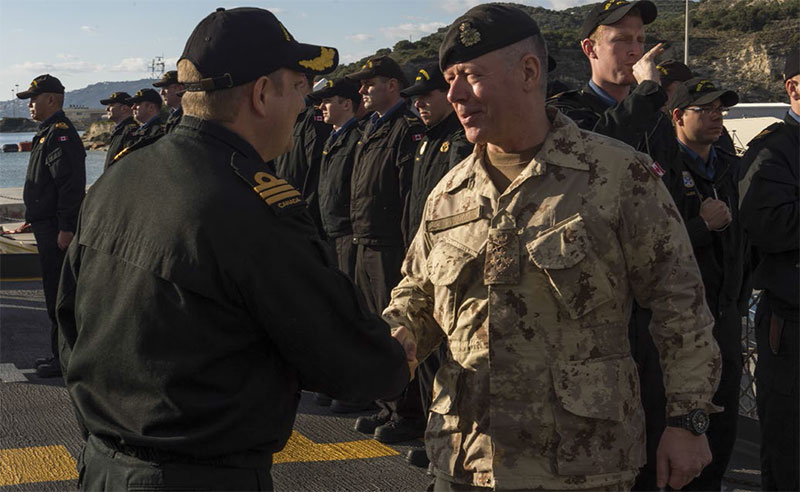 Lastly, evaluating the means used during the intervention becomes crucial, since those means will have long-term effects after the intervention. Dr. Timothy L. Challans of the US Army Command and Staff College proposes the principle of reciprocity: if the end determines the means, perhaps the means should determine the end. In Dewey’s words: “No case of notable achievement can be cited in any field, in which the persons who brought about the end did not give loving care to the instruments and agencies of its production.”38 The means employed during a war thus become more important than victory at any price. We should therefore expect the strategic command to have a practical knowledge of the consequences of the use of military means during an intervention. That includes not only individual acts of soldiers and leaders on the ground, but also the national policies governing the conduct of war, such as the treatment of enemy prisoners, the quality of training, and the selection of personnel.39 These national policies, or their absence, exert an enormous influence upon the actions of troops during operations. As Sun Tzu wrote: “Those who excel in war first cultivate their own humanity and justice and maintain their laws and institutions. By these means they make their governments invincible.”40 The debacle of the Canadian mission in Somalia after the torture and murder of Somali teenager Shidane Arone at the hands of Canadian soldiers is a cautionary tale of what can happen when the high command fails to meet its obligations. In short, the strategic command has the moral responsibility to develop strategies employing fair military means in order to create the necessary conditions for the troops to behave honourably.
Lastly, evaluating the means used during the intervention becomes crucial, since those means will have long-term effects after the intervention. Dr. Timothy L. Challans of the US Army Command and Staff College proposes the principle of reciprocity: if the end determines the means, perhaps the means should determine the end. In Dewey’s words: “No case of notable achievement can be cited in any field, in which the persons who brought about the end did not give loving care to the instruments and agencies of its production.”38 The means employed during a war thus become more important than victory at any price. We should therefore expect the strategic command to have a practical knowledge of the consequences of the use of military means during an intervention. That includes not only individual acts of soldiers and leaders on the ground, but also the national policies governing the conduct of war, such as the treatment of enemy prisoners, the quality of training, and the selection of personnel.39 These national policies, or their absence, exert an enormous influence upon the actions of troops during operations. As Sun Tzu wrote: “Those who excel in war first cultivate their own humanity and justice and maintain their laws and institutions. By these means they make their governments invincible.”40 The debacle of the Canadian mission in Somalia after the torture and murder of Somali teenager Shidane Arone at the hands of Canadian soldiers is a cautionary tale of what can happen when the high command fails to meet its obligations. In short, the strategic command has the moral responsibility to develop strategies employing fair military means in order to create the necessary conditions for the troops to behave honourably.
DND photo RP10-2016-0132-004 by Corporal Blaine Sewell. Chief of the Defence Staff, General Jonathan Vance (right) alongside HMCS Charlottetown in Souda Bay Crete, Greece, during Operation Reassurance, 19 December 2016.
Conclusion: Thinking and Acting Beyond Victory
Regardless of the debate about what victory means or the value of a given intervention by the Canadian military, and sometimes even in the absence of clear strategic directives, military personnel are called upon to deploy on the ground, and they must act. The idea of clear, legal strategic victory thus conflicts with the day-to-day reality experienced by the troops – a reality which gives them the impression that they are losing the war, particularly in modern warfare, in which it is difficult to distinguish between the victor and the vanquished. Law, and therefore victory in the legal sense, has meaning only when looking back into the past, after the events, whereas what soldiers need in order to deal with the complexity of the battlefield is the ability to look to the future, toward peace. If a soldier must choose, it is better to lose with honour, as a dishonourable victory is the worst possible defeat. “Moral reasoning comes before action; legal reasoning comes after it.”41 [Translation.]
This article has analyzed the concept of victory and demonstrated the ambiguity that surrounds it and its inadequacy as a strategic objective. Not only is victory of little use as a concept, it is also counter-productive because it can be used to justify the employment of unacceptable military means in order to achieve a decisive victory. In my opinion, the means employed during hostilities are more important than achieving victory at any price. The actions of soldiers on the battlefield which are so crucial for building the future peace – the jus in bello, to use the terminology of “just war” theory – depend upon the tone set and the directives issued by the military high command. The strategic command thus has the moral responsibility, when developing its military strategies, to ensure that the means employed are consistent with the desired end. Therefore, to move beyond the notion of victory, I propose the pursuit of limited strategic objectives and a negotiated end, which should create the necessary conditions for honourable military actions on the ground and lead to a lasting peace. Acting honourably is the only possible option for military personnel. The only things the troops control on the ground are their means, their actions, and their reactions. The memory of those actions is all they are left with when they return home.
Notes
I thank professors Marc Imbeault of Royal Military College Saint-Jean and Eric Ouellet of the Canadian Forces College, MGen (ret) Daniel Gosselin, and Eric Lefrançois for their invaluable help during the writing of this article. However, I take full responsibility for its content.
A number of current theorists describe war in win/lose terms, with recommendations concerning the means and the parameters to use in order to win. See, for example, Ryan Grauer and Michael Horowitz, “What Determines Military Victory? Testing the Modern System,” in Security Studies, 2012, No. 2, pp. 83–112; Steve Dobransky, “The Dawn of a New Age? Democracies and Military Victory,” in Journal of Strategic Studies, 2013, Vol. 7, No. 1, pp. 1–15.
General Douglas MacArthur in his address to the U.S. Congress, 19 April 1951.
Michael Walzer, Guerres justes et injustes (Paris: Belin, 1999), p. 436.
William Martel, Victory in War: Foundations of Modern Strategy (Cambridge: Cambridge University Press, 2011), p. 98.
Sun Tzu, The Art of War (Oxford, UK: Oxford University Press, 1963), p. 73.
Ibid., p. 54.
Martel, p. 66.
Nicholas Stuart, “Finding the Hinge: The Western Way of War and the Elusive Search for Victory,” in Australian Army Journal (p. 223), Vol. II, No. 2, pp. 217–225.
Carl von Clausewitz, On War (New York: Alfred A. Knopf, 1993), p. 99.
Martin Van Creveld, The Art of War: War and Military Thought (London: Harper Collins, 2000), p. 109.
Professor Marc Imbeault notes that, in Kant’s philosophy, the thing in itself is unknowable and is in opposition to the phenomenon, the thing we know. Thus, knowledge is not truth, but rather a construction of reality that is, in itself, unknowable.
Clausewitz, p. 294.
Ibid., p. 306.
Shimon Naveh, In Pursuit of Military Excellence: The Evolution of Operational Theory (Abington, UK: Frank Cass Publishers, 1997), p. 71.
Clausewitz, p. 492.
Peter Paret, (ed.), Makers of Modern Strategy from Machiavelli to the Nuclear Age (Princeton, NJ: Princeton University Press, 1986), p. 528; and Martel, p. 98.
Quoted in Dudley Lynch and Paul L. Kordis, Strategy of the Dolphin: Scoring a Win in a Chaotic World (New York: William Morrow and Company, 1988), p. 32.
Martel, p. 374.
Quoted in Martel, p. 102.
Timothy L. Challans, Awakening Warrior: Revolution in the Ethics of Warfare (Albany, NY: State University of New York), p. 106.
Bernard Fook Weng Loo, “Decisive Battle, Victory and the Revolution in Military Affairs,” in Journal of Strategic Studies (p. 195), April 2009, Vol. 32, No. 2, pp. 189–211.
Leo J. Blanken, Hy S. Rothstein, and Jason J. Lepore, Assessing War: The Challenges of Measuring Success and Failure (Washington, DC: Georgetown University Press, 2015), p. 9.
Robert Mandel, The Meaning of Military Victory (Boulder, CO: Lynne Reinner Publishers, 2006), p. 1.
Julian Alford and Scott Cuomo, “Operational Design for ISAF in Afghanistan: A Primer,” in JFQ (p. 94), No. 53, 2nd quarter 2009, pp. 92–98.
Quoted in Jean-Baptiste Vilmer, La guerre au nom de l’humanité: tuer ou laisser mourir (Paris: Presses universitaires de France), p. 498.
Marc Imbeault, “Le paradigme analytique du tortionnaire ou La nouvelle philosophie du bourreau,” at http://www.cmrsj-rmcsj.forces.gc.ca/cb-bk/art-art/2014/art-art-2014-3-eng.asp.
Risa A. Brooks, Shaping Strategy: The Civil-Military Politics of Strategic Assessment (Princeton, NJ: Princeton University Press, 2008), pp. 4–9, 15–18.
Vilmer, p. 323.
Blanken et al., p. 21.
James M. Dubik, Just War Reconsidered: Strategy, Ethics and Theory (Lexington, KY: University Press of Kentucky, 2016), p. 139.
Quoted with the permission of General Jonathan Vance by e-mail dated 22 November 2016, General and Flag Officers (GO/FO) Symposium, Ottawa, 31 August–1 September 2016.
Quoted in Challans, p. 113.
Vilmer, p. 486.
J.F.C. Fuller, The Conduct of War 1869–1961 (Boston, MA: Da Capo Press, 1961), p. 76.
Mandel, p. 177.
Quoted in Challans, p. 126.
Dubik, p. 167.
Sun Tzu, p. 88.
Quoted in Vilmer, p. 496.
About the Author
Brigadier-General Jennie Carignan, OMM, MSM, CD, is a Combat Engineer and a graduate of the Royal Military College of Canada, specializing in fuel and materials engineering.
No comments:
Post a Comment